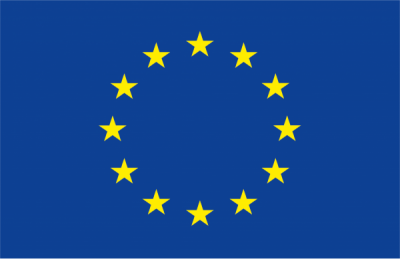Projects
AbsoRbIng Aerosols in the Eastern MeDiterraNEan – ARIADNE
Absorbing aerosols refer to particles that absorb solar light, with carbonaceous aerosols (CAs) and dust being the major contributors. These absorbing aerosols lead to a positive radiative effect (forcing), thus contributing to atmospheric warming in a way similar to greenhouse gases. From a climatic point of view, the Eastern Mediterranean region, which is characterized with significant amounts of desert dust due to Sahara and Middle East dust emissions and CAs from seasonal forest fires, is caught in a vicious circle. Climate change scenarios suggest that the area is projected to dry further promoting aridification and resulting in an increased number of wildfires that in turn elevate the contribution of absorbing aerosols radiative effect creating a positive feedback to global warming, originally induced by greenhouse gases. A recent review study revealed a significantly increasing temperature trend in the Eastern Mediterranean – Middle East (EMME) region, which is higher than the global average, validating that the EMME is a climate change hotspot, where climatic factors should be better understood in order to improve our strategies against a warming climate.
ARIADNE aims to understand how the feedback loop of climate change-induced wildfires affects the Eastern Mediterranean climate. To achieve its aims, the project will exploit already collected samples from two archives (PANACEA-RI and DLI), aiming to create the first comprehensive database of aerosol radiative effects covering the East Mediterranean and to investigate discrepancies in radiative models for the region.
ARIADNE will pave the road for a reducing uncertainty in climatic model predictions, a topic of global interest in a world of almost annual record-breaking temperatures. It uses established experimental techniques deemed TRL3, to create new scientific knowledge, while promoting for collaboration in the region.
ARIADNE is co-funded by the European Regional Development Fund and the Republic of Cyprus through the Research and Innovation Foundation
Start date: 01/05/2025
End date: 30/04/2027
Funding: €179,596

Spark-Generated Aerosol Nanoparticles: Catalysts for Life Formation and for reducing atmospheric CO2 – CATALYST-VISIT
The CATALYST-VISIT project aims to investigate the catalytic roles of aerosol nanoparticles generated by electrical discharges in two critical areas: the origin of life on Earth and the reduction of atmospheric CO2. By drawing insights from early Earth conditions, where CO2 played a pivotal role, the project seeks to develop novel pathways for amino acid synthesis, essential for life, while also addressing contemporary challenges posed by rising CO2 levels.
CATALYST-VISIT is co-funded by the European Regional Development Fund and the Republic of Cyprus through the Research and Innovation Foundation
Start date: 01/06/2025
End date: 31/05/2026
Funding: €25,002

Emission of Volatile Organic Compounds and Urban Pollution: An Interconnected System – EVOCPOLIS
EVOCPOLIS seeks to address a critical gap in atmospheric sciences by studying how urban vegetation responds to pollution and heat stress through the lens of Biogenic Volatile Organic Compounds (BVOCs). BVOCs are regulating biosphere-atmosphere interactions, yet their emission patterns in urban environments remain poorly understood. This project focuses on establishing clear mechanistic links between urban pollution and BVOC emissions, with the ultimate goal of strengthening air quality models and guiding sustainable urban planning.
Set in Cyprus, a climate change hotspot and a crossroads of pollution sources, EVOCPOLIS combines innovative laboratory and field studies to quantify BVOC storage capacities and identify temperature-related emission tipping points. By comparing urban, rural, and natural environments, the project aims to reveal how trees adapt to pollution and heat, providing valuable insights for urban greening strategies and public health interventions.
The anticipated outcomes include novel data on urban vegetation’s role in air quality, actionable knowledge for urban planning, and strengthened capacity for climate adaptation efforts. Dissemination will be achieved through collaborations with municipalities, international experts, and open-access publications, ensuring broad impact. EVOCPOLIS will also lay the foundation for a competitive ERC proposal, advancing interdisciplinary research at the intersection of atmospheric chemistry, urban resilience, and environmental health.
The project is co-funded by the EU within the framework of the Cohesion Policy Programme “THALIA 2021-2027
Start date: 01/05/2025
End date: 30/08/2026
Funding: €100,030

Catalytic role of Spark-Produced Aerosol Nanoparticles for Life-Formation and CO2 Reduction- SUNRISE
The SUNRISE project aims to investigate the catalytic roles of aerosol nanoparticles generated by electrical discharges in two critical areas: the origin of life on Earth and the reduction of atmospheric CO2. By leveraging insights from early Earth conditions, where CO2 was pivotal, the project seeks to develop novel pathways for amino acid synthesis, essential for life, while concurrently addressing contemporary challenges posed by rising CO2 levels. Inspired by landmark experiments like the Miller-Urey study, SUNRISE integrates plasma and photocatalysis to explore how naturally occurring nanoparticles, such as those from volcanic origins, influence amino acid formation. Experimental setups using spark discharge generators and UV lamps will elucidate the nanoparticle-mediated pathways in amino acid synthesis, distinguishing between gas-phase and liquid-phase mechanisms.
This interdisciplinary approach merges catalysis, environmental science, and nanotechnology to advance understanding of life’s origins and develop sustainable methods for amino acid production. Scientifically, the project aims to characterize aerosol nanoparticles and their catalytic properties, shedding light on their size-composition-activity relationships. Technologically, it seeks to optimize catalytic materials and synthesis procedures to minimize by-products, aligning with principles of green chemistry and enhancing industrial applications. SUNRISE’s innovative framework promises breakthroughs in both fundamental science and practical applications, significantly contributing to our knowledge for the origin of life and addressing pressing global challenges related to climate change mitigation.
SUNRISE is co-funded by the European Regional Development Fund and the Republic of Cyprus through the Research and Innovation Foundation
Start date: 01/05/2025
End date: 30/04/2027
Funding: €200,000

Advanced Nanoparticle and Atomic Cluster Hygroscopicity Analyzers – ANCHOR
Aerosol hygroscopicity is one of the most climate- and health-relevant properties of aerosol particles, affecting their physical, optical and chemical properties. Based on recent research using thermodynamic models and molecular dynamics simulations it is suggested that aerosol hygroscopicity plays also a key role during new particle formation (NPF) events contributing to the stabilization of atomic clusters (ACs) and to the initial growth of the nucleation particles (i.e., sub 10 nm aerosols). Current state-of-the-art, aerosol instrumentation cannot measure the hygroscopic properties (e.g., hygroscopic growth, stabilization) of ACs and sub-3 nm nanoparticles, while it requires very high number concentrations for measuring the hygroscopicity of nanoparticles with sizes of 5 to 10 nm, which can be reached only in laboratory conditions or during very intense NPF events.
ANCHOR aims in overcoming the limitations of the existing state-of-the-art systems for probing the hygroscopicity of ACs and sub-10 nm particles by developing and testing two novel systems with unparallel sensitivity and resolution. The novel systems, will be further employed for testing the existing theoretical framework, which validity has not been experimentally confirmed for nanoparticles smaller than 5 nm. In addition, the novel systems will be employed for validating the predictions made by atomistic models, describing the interactions of ACs of atmospheric relevance with water (e.g., growth/stabilization).
Besides the development of novel technologies in the field of aerosol instrumentation, the expected outcomes of ANCHOR will deepen our knowledge on the role of water in first stages of NPF events. A multidisciplinary team (consisted by experts in aerosol instrumentation, AC analysis and in molecular dynamics modeling) complemented by highly specialized engineers and by utilizing unique for the region facilities will successfully implement ANCHOR and optimally exploit its outcomes.
ANCHOR is co-funded by the European Regional Development Fund and the Republic of Cyprus through the Research and Innovation Foundation
Start date: 01/05/2025
End date: 30/04/2027
Funding: €199,987.80

Correlation of Dust models on PV Energy production – PV-DUST
Environmental regulations force electricity market players to look for cleaner energy and cost-effective solutions. Therefore, most government policies aim to promote the utilization of Renewable Energy Sources (RES). Photovoltaics (PV) systems have already made a noticeable contribution to the national electricity portfolio in some countries and its penetration is expected to play a much larger role in the future. However, the intermittent character of PV power output could generate major issues in balancing power production and load demand. Therefore, control and operation problems for users and administrators of the electricity grid may ensue because of the unstable power production of a PV system due to sudden surpluses or drops in power output.
The ability to accurately predict the PV power production variability, when it occurs, will thus help system operators to monitor production and control the periodic energy to their scheduling, dispatching, and regulation of power by cutback the excess energy and/or modify the operational setting of the respective voltage converters. The overall goal of the project is to develop various forecasting/correlation models and thus provide the energy sector an operational management tool for precise forecasts of solar energy production through an open communication protocol. It aims to indirectly increase the flexibility of the electricity grid by enabling both at the TSO level (grid management) and at the PV Park Owner level (pricing/storage management), due to more precise PV energy forecasting.
This project is funded by the European Union Recovery and Resilience Facility of the NextGenerationEU instrument, through the Cyprus Research and Innovation Foundation (COM-CONCEPT-ENERGY/0624/0159)
Funding: €194,110
Start date: 01/4/2025
End date: 31/03/2026
Partners:
- Cyprus University of Technology
- The Cyprus Institute
- Johnsun Heaters Ltd
- Cocoon Creations Services Ltd

Investigating Methane for Climate Action -IM4CA
The IM4CA project unites leading European methane experts in a concerted effort to establish the scientific fundament needed to bring the climate forcing of methane under control. Specific objectives are to:
1) Strengthen methane mitigation policy world-wide with actionable information on local methane emissions and key driving processes, 2) Provide the EU with the measurement and modeling capacity needed to monitor its methane emissions and assess its progress towards the 30% emission reduction target of the European methane strategy and the global methane pledge, 3) Explore and understand climate feedbacks on natural methane sources and sinks, and 4) Improve the accuracy of climate scenarios by resolving the controversy about the causes for the recent growth rate variations in global methane.
To achieve these objectives we address a selection of key uncertainties that have thus far limited the progress towards these goals by: i) building up critical new infrastructure for monitoring methane emissions in Europe and Tropical Africa, ii) developing methodology for efficient use of existing and upcoming satellites for measuring methane and the land surface properties needed for characterizing and attributing its emissions, and iii) translating the knowledge obtained into reliable projections of future methane and efficient emission mitigation scenarios. In doing so, the IM4CA project will enable a breakthrough in meeting the work program challenge of enhancing the quantification and understanding of natural and anthropogenic methane emissions and sinks.
IM4CA will provide enhanced European assessment capacity of short- and long-term changes in methane sources and sinks integrating information from multi platforms and novel observations and transfer that capacity into actionable information needed to combat climate change.
Funding: €14,738,820.00
Start date: 1 January 2025
End date: 31 December 2028


“Funded by the European Union. Views and opinions expressed are however those of the author(s) and do not necessarily reflect those of the European Union or REA. Neither the European Union, nor the granting authority can be held responsible for them.”
OneBiosecurity Systems and Technology for People, Places and Pathways – OneSTOP
OneSTOP is a European project, funded by the European Union through the Horizon Europe Framework Programme. The overarching objective of OneSTOP is to pioneer an innovative and joined-up approach to biosecurity for terrestrial invasive alien species, strengthening the interconnections between animal, plant, human and environmental health. OneSTOP aims to harness current technologies and citizen science, while overcoming challenges posed by dispersed and fragmentary processes, policies, and knowledge, to deliver methods for identification, early detection and surveillance of invasive alien species. OneSTOP aims to achieve transformative results to minimise the introduction, establishment and spread of invasive alien species by integrating cutting-edge detection methods, underpinned by prioritisation and robust models, alongside stakeholder engagement to inform harmonised policies and facilitate knowledge exchange.
The outcomes will be relevant for invasive alien species policy, noting the importance of enhancing collaboration and coordination across local, national, and regional scales, recognising that geographic boundaries do not confine the impact of these species. By adopting a holistic and interconnected approach, OneSTOP seeks to establish a strategy to achieve rapid and transformative progress in detecting, eradicating and controlling invasive alien animals and plants, ultimately contributing to a more secure and resilient environment. Throughout, OneSTOP is based upon the strategic actions recommended for integrated governance of biological invasions in the recently published IPBES Thematic assessment report on invasive alien species and their control (IPBES 2023).
Funding: €6,277,964.38
Start date: 1 January 2025
End date: 30 June 2028

“Funded by the European Union. Views and opinions expressed are however those of the author(s) and do not necessarily reflect those of the European Union or REA. Neither the European Union, nor the granting authority can be held responsible for them.”
Spark-produced aerosol nanoparticles: exploring their catalytic role in life-formation experiments and their great potential for reducing atmospheric CO2- SPARKLE
The SPARKLE project aims to investigate the catalytic roles of aerosol nanoparticles generated by electrical discharges in two critical areas: the origin of life on Earth and the reduction of atmospheric CO2. By leveraging insights from early Earth conditions, where CO2 was pivotal, the project seeks to develop novel pathways for amino acid synthesis, essential for life, while concurrently addressing contemporary challenges posed by rising CO2 levels. Inspired by landmark experiments like the Miller-Urey study, which overlooked the potential role of nanoparticles produced during electrical discharges in their experimental outcomes, SPARKLE integrates plasma and photocatalysis to explore how naturally occurring nanoparticles, such as those from volcanic origins, influence amino acid formation.
Experimental setups will elucidate the nanoparticle-mediated pathways in amino acid synthesis, distinguishing between gas-phase and liquid-phase mechanisms. This interdisciplinary approach merges catalysis, environmental science, and nanotechnology to advance understanding of life’s origins and develop sustainable methods for amino acid production. The outcomes are expected to bolster competitiveness for future ERC funding, enhance scientific visibility through high-impact publications, and foster collaborations across diverse fields. SPARKLE’s innovative framework promises breakthroughs in both fundamental science and practical applications, significantly contributing to our knowledge of the origin of life and addressing pressing global challenges related to climate change mitigation.
SPARKLE is co-funded by the European Regional Development Fund and the Republic of Cyprus through the Research and Innovation Foundation
Start date: 01/12/2024
End date: 31/05/2026
Funding: €100,000

Climate Impacts of a hydrogen economy: The pathway to knowledge- HYway
The HYway project aims to be the most comprehensive study on the environmental effects of large-scale hydrogen usage. Through a series of interconnected work packages and coordinated efforts, HYway aims to provide comprehensive insights into the hydrogen economy’s environmental implications and foster effective communication between scientific and industrial stakeholders. The findings will provide policymakers with critical information for the transition to a low-carbon economy.
Main Objectives of HYway:
- Hydrogen budget: Refinement of the current and pre-industrial hydrogen budget and development of a strategy to improve monitoring of hydrogen concentrations in Europe.
- Impacts of hydrogen emissions: Quantify the impact of hydrogen on atmospheric composition and radiative forcing by methane, stratospheric water, ozone and aerosols.
- Soil uptake and leakage: Improving the understanding of soil uptake of hydrogen and assessing leakage rates.
- Emission inventories: Development of detailed inventories for current hydrogen emissions.
- Future hydrogen economy: Creation of realistic scenarios for a future hydrogen economy and assessment of climate and environmental impacts.
Funding: €3,949,193.75
Start Date: 1 September, 2024
End date: 31 August, 2028
Partners:
– CICERO Senter for klimaforskning (CICERO, Norway) – Coordinator
– Centre National de la Recherche Scientifique (CNRS, France)
– Commissariat à l’Energie Atomique (CEA, France)
– Deutsches Zentrum für Luft- und Raumfahrt (DLR, Germany)
– International Institute for Applied Systems Analysis (IIASA, Austria)
– Koninklijk Nederlands Meteorologisch Instituut (KNMI, Netherlands)
– Lunds Universitet (ULUND, Sweden)
– Meteorologisk Institutt (METNO, Norway)
– The Cyprus Institute (CYI, Cyprus)
Funded by the European Union under grant agreement No.101137582.
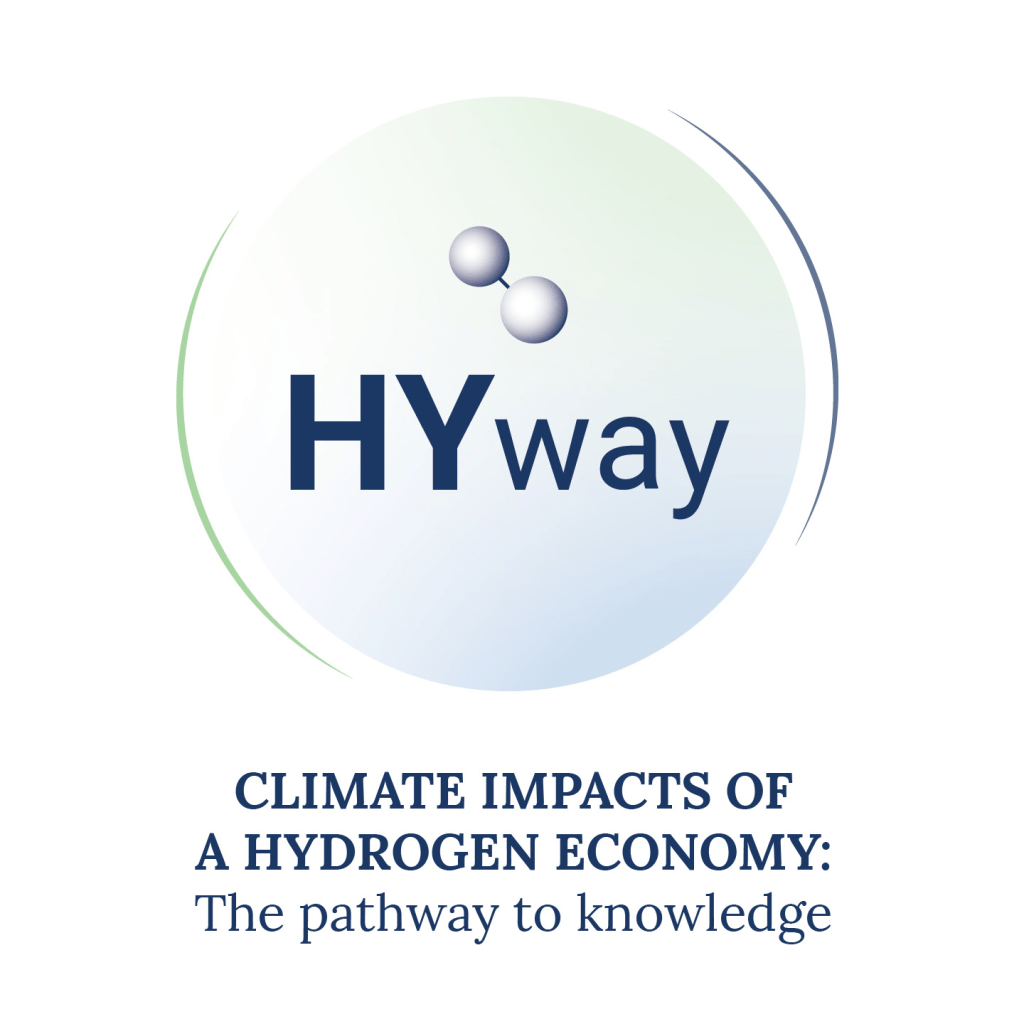

Doctoral Network on Atmospheric Dust – DUST-DN
Atmospheric dust is one of the most visible and detectable aspects of the transboundary transport of atmospheric constituents, affecting visibility, radiation, and climate. Despite its obvious presence in the atmosphere, the fundamental properties of atmospheric dust remain poorly understood, limiting our ability to develop accurate models and harness the societal benefits of better predictions. The Dust-DN project aims to bridge this knowledge gap by creating the first doctoral network dedicated to atmospheric mineral dust on a European scale, combining expertise and multidisciplinary approaches.
It is a strategic, international, and intersectoral alliance of high-profile partners that will drive innovation in understanding the fundamental properties of dust and in predicting its socio-economic impacts. By training a cohort of early-career scientists within a network of academic and non-academic partners, Dust-DN will address critical gaps in the field through the following research objectives:
- Investigating dust within the global climate system.
- Advancing the understanding of the fundamentals of dust microphysical properties and processes.
- Identifying the influence of source regions on atmospheric dust properties.
- Assessing the socio-economic impacts of dust on health, aviation, and energy production.
CARE-C is the coordinator of this project and is led by Assoc Prof Franco Marenco.
Funding: €3,586,185.6
Start date: 1 November 2024
End date: 31 December 2028
Partners:
- The Cyprus Institute (coordinator) – Cyprus
- University of Évora (UÉ) – Portugal
- National Observatory of Athens (NOA) – Greece
- Barcelona Supercomputing Center (BSC) – Spain
- Technical University of Darmstadt (TUDa) – Germany
- Karlsruhe Institute of Technology (KIT) – Germany
- University of Reading (UREAD) – UK
- Physikalisch-Meteorologisches Observatorium Davos – World Radiation Center (PMOD-WRC) – Switzerland
This project has received funding from the European Union’s Horizon Europe Research and Innovation Programme under the Marie Skłodowska-Curie grant agreement No 101168425, as well as two national agencies: UKRI in the United Kingdom and SERI in Switzerland.

Environmental Analysis and Resilience for Transformative Human-Optimized Natural Environments – EARTHONE
The mission of the EARTHONE project is to tackle the urgent challenge of preserving and enhancing Earth’s natural greenhouse gas (GHG) sinks. This involves understanding how various factors, including socio-economic, demographic, and physical constraints, influence GHG fluxes.
The project adopts a unique interdisciplinary approach by integrating advanced data-driven technologies with regional contexts through living labs. This allows for the development of effective multi-target solutions and guidelines for all stakeholders involved in Land Use – Land Use Change – Forestry (LULUCF) topics. Special emphasis is placed on the most vulnerable areas in Southern Europe and the Mediterranean, with pilot studies conducted in Spain, Greece, Italy, Slovenia, Croatia, and North Macedonia.
In EARTHONE, CYI’s Climate and Atmosphere Research Center (CARE-C) will primarily focus on applying regional climate models to evaluate the impacts of climate change on land use and the reciprocal effects. Special emphasis will be placed on assessing the impact on extreme weather events that are relevant to the pilot case studies.
Funding: €5.995.000
Start date: 1 January 2025
End date: 31 December 2028
Partners:
- Universidad Politecnica De Madrid – Spain
- Panepistimio Thessalias – Greece
- Gozdarski Institut Slovenije – Slovenia
- AG Futura Technologii Dooel Skopje – North Macedonia
- Oikon Doo – Institut Za Primijenjenu Ekologiju – Croatia
- Agenzia Veneta Per L’innovazione Nel Settore Primario – Italy
- Universita Degli Studi Di Padova – Italy
- Dimitra Ellinikos Georgikos Organismos – Dimitra – Greece
- Uczelnia Lazarskiego – Poland
- Fondazione Medes – Italy
- Australo Interinnov Marketing Lab Sl – Spain
- Universiteit Twente – Netherlands
- The Cyprus Institute – Cyprus
- Universitaet Bremen – Germany
- Exus Software Monoprosopi Etairia Periorismenis Evthinis – Greece
- Sistemas Avanzados De Tecnologia Sa – Spain
- Cedars, Svetovanje, D.O.O. – Slovenia
This project has received funding from the European Union’s Horizon RIA – Research Executive Agency, under grant agreement No 101181825


EUROPEAN RESEARCH EXECUTIVE AGENCY (REA)
Noise and/or ultrafine particulate matter induced cerebral and cardiovascular damage: novel insights from experimental and epidemiological brain-heart axis biomarkers and computational models – MARKOPOLO
The project addresses the critical health issues of traffic noise and air pollution (particulate matter incl. ultrafine particles) by a unique translational approach using experimental and computational models in clinical, interventional, and epidemiological studies. A primary goal is to identify disease-relevant biomarkers and understand the molecular pathways of cerebral, pulmonary and cardiovascular diseases, also by effective translation of animal findings to human health. Our “bench to life” approach on the brain-heart axis is entirely driven by profound preclinical mechanistic knowledge and will use novel Multiomics methodology (e.g. redox/phospho-proteomics, “spatial” epigenetics), allowing analysis of key pathomechanisms, to be included in exposure-response models. This will improve risk assessment and allow evaluation of the effectiveness of mitigation strategies. We will also consider the societal circumstances and policies at the national level and their impact on different stakeholders.
MARKOPOLO will advance our understanding of the complex interplay between noise, air pollution, and human well-being and provide clearer information and guidelines for various stakeholders.
Funding: €7.999.000
Start date: 1 January, 2025
End date: 31 December, 2028
Partners:
- Universitaetsmedizin Der Johannes Gutenberguniversitaet – Germany
- Universita Degli Studi Di Padova – Italy
- Medical University Of South Carolina – USA
- Vytauto Didziojo Universitetas – Lithuania
- Faculty Of Medicine, University Of Belgrade – Serbia
- The Cyprus Institute – Cyprus
- Concentris Research Management Gmbh – Germany
- Max-Planck-Gesellschaft Zur Forderung Der Wissenschaften – Germany
- Laboratoire National De Sante – Luxemburg
- Luxembourg Institute Of Health – Luxemburg
- Ita-Suomen Yliopisto – Finland
- Julius-Maximilians-Universitat Wurzburg – Germany
- Syddansk Universitet – Denmark
- Kraeftens Bekaempelse – Denmark
- Schweizerisches Tropen Und Public Health Institute – Switzerland
This project has received funding from the European Union’s Horizon Research and Innovation Actions, under grant agreement No 101156161

EUROPEAN HEALTH AND DIGITAL EXECUTIVE AGENCY (HADEA)
CLIMPACT II: Climate Change and Urban Heat Island project
The “National Research Network for Climate Change and Its Effects – CLIMPACT” is an interdisciplinary consortium comprising 28 members from the academic and research communities in Greece and Cyprus, dedicated to addressing issues related to Climate Change and the associated climate risks, natural disasters, as well as social and economic impacts.
The Cyprus Institute participates, through CARE-C, in Phase II of the project by contributing to Action 2.3 Climate Crisis and Urban Heat Island. Specifically, CARE-C is structuring the methodology and assisting in the evaluation for dynamic and statistical downscaling of urban climate, mainly through the utilization of the Weather Research and Forecasting (WRF).It also leverages its network in the broader Eastern Mediterranean and Middle East (EMME) region for the dissemination of the Action’s results. More info in the project web page: https://climpact.gr/main/
Start date: 21/06/2024
End date: 20/12/2025

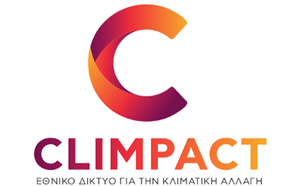
Innovative Solutions across the MEDiterranean for mitigation of Climate change-related heaLth rIsks and enhancing health systeM resilience- ISMED-CLIM
Innovative Solutions across the MEDiterranean for mitigation of Climate change-related heaLth rIsks and enhancing health systeM resilience (ISMED-CLIM) is a new Horizon project, which aims to engage and mobilise regional stakeholders across the Mediterranean, in implementing a wide array of adaptation solutions to mitigate the health effects of climate change, and provide evidence for their feasibility, user acceptance and efficacy.
Specifically, ISMED-CLIM will:
- enhance the understanding of climate change effects on non-communicable diseases (NCDs) and vector-borne infections across representative European countries within the Mediterranean.
- quantify, for the first time, how public health interventions integrating state-of-the-art technologies, public and social media, with vulnerable citizens’ participation can reduce personal exposures to heat and air pollution and related health effects.
- validate the feasibility and user acceptance among high-risk professionals of a regional early warning and risk prediction tool to mitigate the risk posed by exposure to sand flies and related diseases;
- employ open, participatory, and co-creative methodologies to locally adapt and refine existing evidence-based practices and prototype tools to increase the preparedness and ability of health systems in the Mediterranean to deliver safe, effective, and efficient care to citizens. The consortium will test the proposed demonstration solutions initially in eight sites and coordinate ten replications in six sites in five European countries (Cyprus, Greece, Italy, Spain, Portugal), in alignment with Climate Change Adaptation Mission objectives.
The partners aim to integrate the produced knowledge from epidemiology, forecasting, exposure and health data with insights from the demonstration and replication activities into a knowledge portal and policy decision-centric and action-oriented dashboard for policy makers, healthcare administrators, professionals and citizens. ISMED-CLIM’s approaches will be readily applicable in other European regions affected by the same or other climate change-related stressors, such as forest fire smoke, floods, ozone, and cold.
ISMED-CLIM, involving 27 actors from 7 countries, has started on 1 November 2024 and will run for 4 years. The project proposes solutions and applications to be tested in European countries across the Mediterranean, Cyprus, Greece, Italy, Cyprus, Italy, Spain and Portugal, which are strongly affected by the impacts of climate change.
The Faculty of Medicine of the University of Cyprus coordinates the project, in collaboration with the the Department of Civil and Environmental Engineering and the Department of Social and Political Sciences, while from Cyprus also CARE-C of the Cyprus Institute, the Health Insurance Organisation (OAI), the Federation of Pensioners EKYSY and the high-tech company EBOS Technologies Ltd are partners.
Funding: Horizon Europe
Start date: 1 November 2024
End date: 31 October 2028


“Funded by the European Union. Views and opinions expressed are however those of the author(s) and do not necessarily reflect those of the European Union or REA. Neither the European Union, nor the granting authority can be held responsible for them.”
Integrated Research Infrastructure Services for Climate Change risks – IRISCC
Adaptation to climate change requires in-depth understanding of climate change driven risks, including their determinants (hazards, exposure and vulnerabilities) and impacts to human, production and natural systems. Integrated Research Infrastructure Services for Climate Change Risks (IRISCC) is a consortium of diverse and complementary leading research infrastructures (RIs) covering disciplines from natural sciences to social sciences, across different domains and sectors. IRISCC provides scientific and knowledge services to foster cutting-edge research and evidence-based policymaking to improve Europe’s resilience to climate change.
IRISCC ensures a “one-stopshop” for various user communities on climate change risk related RI services by setting up a dedicated Catalogue of services and related access management system both for granting transnational (onsite and remote) and offering virtual access. The Catalogue of services will be built through three consecutive releases, each delivering increasingly integrated services to its user communities. The IRISCC service integration will include Service Design Labs employing co-design and transdisciplinary action, and Service Demonstrators benchmarking the integrated cross-RI services. In addition to services aimed towards the scientific community, IRISCC will offer knowledge services aimed towards policymakers and other stakeholders. This is done together with risk management platforms.
The research enabled by IRISCC contributes to future reports on climate change effects (IPCC, IPBES) as well as policy- and decision-making to meet the targets of climate adaptation strategies. IRISCC contributes to training a new generation of scientists to efficiently use RI services and for data stewardship. Data from IRISCC will be open and made available in compliance with FAIR principles and linked to European initiatives such as EOSC. Strong links will be created between IRISCC and current and future efforts under Horizon Europe.
IRISCC is funded by the European union under the Grant Agreement number: 101131261.
Funding: €14.500.000
Start date: 1 April, 2024
End date: 30 September, 2028


“Funded by the European Union. Views and opinions expressed are however those of the author(s) and do not necessarily reflect those of the European Union or REA. Neither the European Union, nor the granting authority can be held responsible for them.”
Real-Time Monitoring Networks and Transport Emissions for Tailored Zero Pollution Action Plans in European Cities – Net4Cities
The transport sector is a major contributor to environmental degradation, including air and noise pollution that have negative effects to ecosystems and human health. This is particularly critical in urban areas, where the confluence of transport emissions and high population density result in adverse health impacts and substantial economic burden. The upcoming changes in the transport sector will be critical to reach targets set by the EU Green Deal. The Zero Pollution Action plans are essential tools to reduce pollution at many different levels. Through co-creation with stakeholders Net4Cities will facilitate the realization of the zero-pollution vision by 2050. The backbone of Net4Cities is this transdisciplinary approach in which the consortium members will engage with the partner cities, including ports and airports, to jointly produce new knowledge, and ensure relevance, uptake, and maximize transferability and exploitation. During the project, air and noise pollution monitoring infrastructure will be advanced and expanded in 11 European cities, including transportation hubs such airports and ports, to conform with upcoming directives and provide data for health impact assessments.
The activities are designed to have long-lasting impact through both mid-, and long-term pathways, providing a roadmap for greater uptake in European cities by offering tailored, transferrable, evidence-based support for implementing effective management strategies for reducing transport-related emissions. The main project results will be consolidated in the Net4Cities Studio which will provide (1) a web-based interface with real-time maps and information to raise awareness, and (2) a support tool for policy decisions that will provide guidance for operationalization and recommendations of solutions that consider innovative technologies such as dynamic traffic management systems and inclusion of nature-based solutions in overarching policy designs.
Funding: €5.400.000
Start date: 1 January, 2024
End date: 31 December, 2027


“Funded by the European Union. Views and opinions expressed are however those of the author(s) and do not necessarily reflect those of the European Union or REA. Neither the European Union, nor the granting authority can be held responsible for them.”
Clouds and climate transitioning to post-fossil aerosol regime – CleanCloud
Aerosol-cloud interactions (ACI) remain the largest source of uncertainty in past, present, and future radiative forcing, impeding credible climate projections. ACI effects are expected to change dramatically as we enter a post-fossil world, characterized by strong reductions in anthropogenic aerosol emissions but with increasingly larger impacts from natural aerosols. Although we expect cleaner clouds compared to today, ACI in this post-fossil state may considerably differ from preindustrial conditions, owing to shifts in climate and changes in sources region characteristics. CleanCloud will address the major gaps impeding robust ACI assessments, improve their representation in current and next generation kilometer-scale climate models , quantify and understand their regional and temporal effects, and how they will evolve in the transition to the post-fossil regime.
To accomplish this, CleanCloud will 1) carry out targeted field experiments in European climate hotspots; 2) develop state-of-the-art algorithms and analysis tools to obtain new proxies and diagnostics for key ACI-related processes; 3) contribute to the calibration and validation of upcoming satellite missions in coordination with the satellite community; 4) improve and better constrain kilometer- and large-scale climate models using advanced machine learning, data assimilation and model calibration, confronting perturbed physics ensembles with existing and new satellite and in-situ data; and 5) assess the role of aerosols in the life cycle of convective systems, focusing on precipitation formation and the impacts on the hydrological cycle, and 6) enhance the exploitation of data centres, measurement programs, international campaigns, laboratory studies, and models. With these, CleanCloud will profoundly strengthen European Research on climate change, significantly contribute to upcoming climate assessments, and benefit society through models that enable improved weather and seasonal predictions.
CleanCloud has received funding from Horizon Europe Programme under Grant Agreement No 101137639.
Funding: €8.000.000
Start date: 1 April, 2024
End date: 30 September, 2028


“Funded by the European Union. Views and opinions expressed are however those of the author(s) and do not necessarily reflect those of the European Union or REA. Neither the European Union, nor the granting authority can be held responsible for them.”
ENVironment Research infrastructures INNOVation Roadmap – ENVRINNOV
Starting in January, 2024 and with a duration of three (3) years, ENVRINNOV will co-design, test, and validate a common Innovation Roadmap for the European Environmental and Earth System Research Infrastructures (ENVRI) community. This Roadmap will set a credible pathway for the ENVRI community to establish and operate an ENVRI Innovation Hub (EIH), for the future development of new state-of-the-art technologies and services. The project will also develop the tools, policies, and community necessary for the Roadmap’s successful implementation.
To achieve this, ENVRINNOV will: i) Conduct a comprehensive analysis of ENVRI services and technological needs & gaps, and define how to monitor them regularly. ii)Define, digitalize, and promote the uptake of common ENVRI innovation strategies for new technologies/services development to meet emerging needs/gaps. This will be done by defining and testing innovation co-creation mechanisms between ENVRIs, industry and the scientific community and shaping them into common policies. The project will also develop an ENVRI innovation capacity-building programme, a digital platform to enable them, and an uptake strategy to promote them. iii) Engage the ESFRI and R&I environment ecosystems to ensure long-term synergies and complementarities with ENVRI and gather feedback and support for the Roadmap.
Finally, the project will plan for the timely and realistic implementation of the Roadmap, by also creating and validating with the ENVRI community an implementation plan, governance model and business model for the EIH. ENVRINNOV’s approach supports ESFRI’s strategic objective to “accelerate the exploitation of EU RIs as knowledge & innovation hubs”. It will help strengthen the European response to the climate crisis and its associated scientific, societal and economic challenges, by increasing the capacity of ENVRIs to respond to them. It will contribute to a more effective EU RI landscape, and support better integration across thematic areas and with the EU Technology Infrastructure landscape
This project has received funding from the European Union’s Horizon 2023 research and innovation programme under grant agreement no 101131426.
Funding: €2.500.000
Start date: 01 January, 2024
End date: 31 December, 2027


“Funded by the European Union. Views and opinions expressed are however those of the author(s) and do not necessarily reflect those of the European Union or REA. Neither the European Union, nor the granting authority can be held responsible for them.”
PREVENT: Improved Predictability of Extremes over the Mediterranean from Seasonal to Decadal Timescales
It is well-established that the Mediterranean is a climate change hot spot that warms faster than the global mean rates and the frequency of extremes increases. Moreover, climate models often fail to provide sufficient skill in predicting extremes. Extremes are of utmost importance for many socio-economic sectors and activities, including human health, agriculture and water resource management, ecology, and tourism. Most of these activities are dominant drivers of the Mediterranean macro- and micro-economy.
The overall objective of PREVENT is to improve the predictability of impact-relevant extremes in the Mediterranean region on timescales from seasonal to decadal using state-of-the-art dynamical, statistical, and machine learning methods. Additionally, PREVENT brings together experts in different disciplines and geographical regions for a comprehensive study of impact-relevant climate extremes in the Mediterranean to improve their seasonal and decadal predictions in a changing climate. PREVENT intents to 1. Define local climate extreme hotspot regions in the Mediterranean; 2. Provide new management tools that can be used in many domains to guide and direct processes, support monitoring activities, and increase organizational efficiency; 3. Develop awareness and competencies by enabling policymakers, industry, and other stakeholders to understand, promote and practice including seasonal and decadal predictions in their planning. PREVENT has a small, flexible consortium consisting of colleagues with significant experience in the Mediterranean climate, especially in the analysis of extreme events and the application of impact models.
This project has received funding from the European Union’s Horizon Research and Innovation Actions, under grant agreement No 101081276
EUROPEAN CLIMATE, INFRASTRUCTURE AND ENVIRONMENT EXECUTIVE AGENCY (CINEA)
 Funding: €2.997.875
Funding: €2.997.875
https://cordis.europa.eu/project/id/101081276
Start date: 1 October 2023
End date: 30 September 2026
Partners
- Aristotle University of Thessaloniki – Greece
- The Cyprus Institute – Cyprus
- Potsdam-Institut fur Klimafolgenforschung EV – Germany
- FINRES – France
- STICHTING VU – Netherlands
- Cyprus Sustainable Tourism Initiative – Cyprus
- The Agricultural Research Organization of Israel – Israel
- Universite Mohammed V de Rabat – Morocco
AVENGERS: ATTRIBUTING AND VERIFYING EUROPEAN AND NATIONAL GREENHOUSE GAS AND AEROSOL EMISSIONS AND RECONCILIATION WITH STATISTICAL BOTTOM UP ESTIMATES
It is well-established that the Mediterranean is a climate change hot spot that warms faster than other regions of the world. The Attributing and Verifying European and National Greenhouse gas and aerosol Emissions and Reconciliation with Statistical bottom-up estimates (AVENGERS consortium) unites a diverse group of experts “to establish how top-down techniques can support the verification of national greenhouse gas (GHG) inventories and other regulated estimates of emissions and removals, in order to improve or supplement the methods/approaches currently used”.
In recognition of the need for a truly multi-actor approach the team represents experts in atmospheric inverse modelling and data assimilation, remote sensing, environmental monitoring and observation, terrestrial ecosystem modelling, policy and stakeholder interaction together with national inventory compilers. AVENGERS builds upon the heritage of previous EU projects, in particular CHE, CoCO2 and VERIFY and will advance the top-down approach for quantifying GHG and aerosol emissions, as well as reconcile and integrate approaches into a joint bottom-up and top-down framework. Based on the reconciliation AVENGERS will prepare good-practice guidelines for use of atmospheric inverse models as well as develop a Flexible Inversion Tool for Inventory Compilers (FIT-IC).
Knowledge and outcomes are provided of use for policy and societal stakeholders and replicable outside of our chosen target area (Europe with a focus on Germany, Italy, Sweden, Switzerland, and The Netherlands). The uniqueness of the consortium lies in the combination of the required scientific expertise with full partner presence of official reporting agencies from exemplary EU countries (Germany, Italy, Sweden, and The Netherlands) facilitating the transfer of knowledge to key international organizations (such as UNFCCC, WMO) in the field.
CARE-C scientists will contribute to this effort with dedicated studies focused on Eastern Mediterranean and Middle East region to complement and stretch the potential of the AVENGERS approach to challenging areas with few validation and verification datasets and tools.
This project has received funding from the European Union’s Horizon Research and Innovation Actions, under grant agreement No 101081322
EUROPEAN CLIMATE, INFRASTRUCTURE AND ENVIRONMENT EXECUTIVE AGENCY (CINEA)
 Funding: €5.500.000
Funding: €5.500.000
Start date: 1 January 2023
End date: 30 June 2026
Partners
- Lunds Universitet – Sweden
- Kaminski Thomas Herbert – The Inversion Lab Thomas Kaminski Consulting- Germany
- Istituto Superiore Per La Protezione E La Ricerca Ambientale – Italian Institute For Environmental Protection And Research – Italy
- Rijksinstituut Voor Volksgezondheid En Milieu – Rivm- Netherlands
- Ruprecht-Karls-Universitaet Heidelberg – Uhei- Germany
- Fondazione Centro Euro-Mediterraneosui Cambiamenti Climatici – Fondazione Cmcc- Italy
- Nederlandse Organisatie Voor Toegepast Natuurwetenschappelijk Onderzoek Tno – Netherlands Organisation Forapplied Scientific Research- Netherlands
- Integrated Carbon Observation System European Research Infrastructureconsortium – Icos Eric- Finland
- Umweltbundesamt – Uba -Germany
- Sveriges Lantbruksuniversitet – Swedish University Of Agricultural Sciences- Sweden
- Stichting Nederlandse Wetenschappelijk Onderzoek Instituten – Nwo-I – Netherlands
- Stichting Vu – Netherlands
- Chalmers Tekniska Hogskola Ab – Sweden
- The Cyprus Institute – Cyprus
The role of Base molecules in AErosol formation (BAE)
The innovating project “The role of Base molecules in AErosol formation (BAE)” submitted by Dr. Tuija Jokinen, Assistant Professor at The Cyprus Institute’s Climate and Atmosphere Research Center (CARE-C), has been selected for funding from the 2022 European Research Council Starting Grant (ERC-StG) call, for a duration of five years and a total budget of 2.24 million euros. The project runs from May 2023 until April 2028.
The project focuses on the role of base molecules in the formation of new particles and their fate in the atmosphere. It will underpin the modelling of ambient atmospheric aerosol processes, which are subject to major changes in Europe and beyond due to emission regulations. An important innovation of this project will be the direct measurement of cations and neutral base molecules and clusters based on mass spectrometry.
The research to be carried out at The Cyprus Institute is led by Dr. Jokinen, an established PI with a demonstrated history in ground breaking nanoaerosol and aerosol precursor studies, and aims to advance our understanding of the atmospheric chemistry and molecular pathways that control the formation and growth of aerosol formation.
The BAE project is of particular significance to global efforts to address the climate crisis, as aerosol formation and growth mechanisms need to be better understood to improve air quality and weather prediction models, and reduce uncertainty of radiative forcing in climate change projections.
Funding: 2.24 million euros
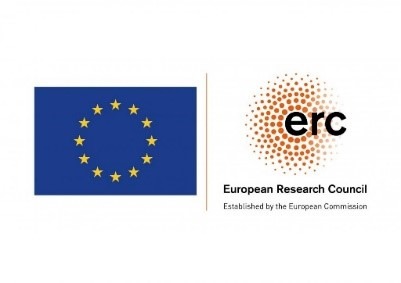
OptimESM: Optimal High-Resolution Earth System Models for Exploring Future Climate Changes
Limiting global warming to 1.5°-2°C, as agreed in the Paris Agreement, is becoming increasingly challenging. Policymakers and societies require information about feasible mitigation pathways that realise the Paris Agreement, as well as information on the consequences of temporarily or more permanently exceeding these targets. OptimESM brings together scientists from different disciplines to provide this information by using the most advanced existing Earth System Models (ESMs), further developing and improving them to produce a new generation of ESMs, and applying these to provide new future climate simulations for a range of new emission scenarios produced by the project Integrated Assessment Models (IAMs). The project started in January 2023 and will run for five years.
OptimESM will develop a novel generation of Earth system models (ESMs), combining high-resolution with an unprecedented representation of key physical and biogeochemical processes. These models will be used to deliver cutting-edge and policy-relevant knowledge around the consequences of reaching or exceeding different levels of global warming, including the risk of rapid change in key Earth system phenomena and the regional impacts arising both from the level of global warming and the occurrence of abrupt changes.
OptimESM will realise these goals by bringing together four ESM groups with Integrated Assessment Modelling teams, as well as experts in model evaluation, Earth system processes, machine learning, climate impacts and science communication. This knowledge will provide a solid foundation for actionable science-based policies.
This project has received funding from the European Union’s Horizon Research and Innovation Actions, under grant agreement No 101081193
EUROPEAN CLIMATE, INFRASTRUCTURE AND ENVIRONMENT EXECUTIVE AGENCY (CINEA)
 Funding: €7.700.000
Funding: €7.700.000
Start date: 1 January 2023
End date: 31 December 2027
Partners
- The Swedish Meteorological and Hydrological Institute – Sweden
- The Danish Meteorological Institute – Denmark
- Centre National De La Recherche Scientifique – France
- Meteo-France – France
- Koninklijk Nederlands Meteorologisch Instituut – Netherlands
- Barcelona Supercomuting Center-Centro Nacional de Supercomputacion – Spain
- Lund University – Sweden
- Consiglio Nazionale delle Ricerche – Italy
- B. Geos Gmbh – Austria
- Potsdam-Institut fur Klimafolgenforschung EV – Germany
- The Finnish Meteorological Institute – Finland
- Centre Europeen de Recherche et Deformation Avancee en Calcul Scientifique – France
- Cineca consorzion interuniversitario – Italy
- The Cyprus Institute – Cyprus
Associated partners
- METOFFICE – UK
- University of Leeds – UK
- National Oceanography Centre – UK
- University of Bristol – UK
- The University of Reading – UK
- The University of Exeter – UK
Next generation models and methods for aircraft pollutants and noise estimation – NEEDED
Air transport is a crucial part of modern logistics and transportation, yet it is necessary to reduce the sector’s emissions and environmental damage, and introduce green innovations. The EU is trying to collect reliable and precise data on predicted aircraft emissions, whether noise or pollutants, to create improved policies.
The EU-funded NEEDED project will provide next generation data-driven reference models and methods to properly deduce current and future aircraft emissions. To achieve this, the project will use real-world ADS-B data to enhance aircraft operations reconstruction and to improve the estimations of the aircraft emissions and the number of people affected by local air transport operations.
NEEDED is funded by the European Union’s Horizon Europe research and innovation programme under GA no. 101095754
Funding: €4.000.000
Start date: 1 January, 2023
End date: 31 December, 2026


“Funded by the European Union. Views and opinions expressed are however those of the author(s) and do not necessarily reflect those of the European Union or REA. Neither the European Union, nor the granting authority can be held responsible for them.”
VEClim: Climate-driven vector-borne disease risk assessment
Climate warming is expected to change the distribution ranges of many insect species. The risk of vector-borne disease emergence will increase consequently, as chikungunya, dengue, and West Nile fever incidences have already increased in the northern hemisphere. Since growth, development, and activity of insects are highly sensitive to climatic and environmental variation, accurate representation of their physiological dependencies is needed to develop predictive, reliable, and widely applicable disease models.
The Cyprus Institute has been among the first to develop computational models of complex life activities that can predict the habitat suitability and abundance of disease vectors that are sensitive to environmental factors and climate change. VEClim project aims to make these models and predictions freely and readily available to the public. By developing a powerful digital engine, VEClim will perform periodic and on-demand numerical simulations predicting the ups and downs of the abundance and activity of important disease vectors, and the risk of diseases transmitted by them at any location and time, up to the end of the century. VEClim’s predictions will be accessible via a user-friendly, interactive web-based geographic information and decision support platform, which will be integrated into the high-performance supercomputing environment of the institute.
VEClim will inform the public and contribute to global-to-local strategies of vector management, and help with efficient, cost-effective, and ecologically sound and sustainable vector control measures to prevent infectious disease spreading.
VEClim is funded by the Wellcome Trust, UK, through the Digital Technology Development Awards (Climate Sensitive Infectious Disease Modelling). It is the first such award the Wellcome Trust has ever made directly to a Cypriot institution.
Funding: €609,711.00 (5 years)

This project is supported by the Wellcome Trust 226065/Z/22/Z
Edu4Climate: European Higher Education Institutions Network for Climate and Atmospheric Sciences
The Eastern Mediterranean and Middle East (EMME) region faces rapid population growth (currently about 400 million inhabitants) as well as political and socio-economic instabilities. These challenges, experienced by a part of the world that is already hot and arid, are exacerbated by droughts and the extreme weather conditions associated with rapid climate change. Extremes of temperature, in combination with increasing air pollution and windblown desert dust, could in the near future lead to intolerable conditions, ultimately compromising human habitability and promoting migration. Since climate change and air quality share many common sources, it appears logical to focus on the development of amelioration strategies that combine the goals of limiting climate change and reducing air pollution. It has been estimated that mankind may have a relatively small-time window – up to the middle of the century – in which to implement solutions to these challenges, particularly as far as climate change is concerned. Edu4ClimAte will engage Advanced Partners (from France, Austria, Germany, Finland) to strengthen the scientific excellence of Higher Education Institutions (HEIs) from twin islands of widening countries (Greece, Cyprus) with a view to establish a “regional hub of knowledge” in air pollution and climate change research and innovative solutions, engaging their respective surrounding ecosystems from the quadruple helix in addressing these societal challenges over the wider EMME. Edu4ClimAte will enhance local, regional, and international clusters led by its consortium with a view to build the foundation of an inclusive European Universities Alliance made of Advanced and Widening HEIs in Climate & Atmospheric Sciences to optimally support the current EU Green Deal ambition and its regional challenges, train and educate the next generation of researchers and innovators to achieve the EU long-term 2050 climate-neutrality objectives.
Funding: €1,999,585.00

LIFE SIRIUS: System for Integrated EnviRonmental Information in Urban areaS
LIFE SIRIUS aims to improve governance in urban air quality planning and management, considering a holistic environmental approach through advancing knowledge, skills and competencies of the responsible authorities, by providing a tangible pathway in order to scale-up and accelerate solutions aiming at tackling air quality issues, giving emphasis on health impacts and compound effects, and a robust framework for increasing awareness of environmental issues associated with poor air quality.
The project brings together 7 partners of excellence from 3 EU Member States (Greece, Cyprus, Italy) with a representative geographical coverage concerning the targeted environmental problem (air quality), cross-cutting complementary competencies and excellent track records in European projects.
LIFE SIRIUS will improve the quality of public authorities of the three targeted areas (Thessaloniki/Greece, Rome/Italy, Nicosia/Cyprus) at all levels in relation to preparatory, mitigation and adaptation actions foreseen in respective AQPs with two main goals: 1. To increase the capacity and improve the effectiveness and efficiency of public administration of the three regions involved in the project to upgrade the performance of AQPs in each city. 2. To develop common evaluation system regarding health effects of air pollution and future scenarios that will assess the evolution of the situation in selected future periods.
The project will also develop an Environmental Management System as a vital decision support tool that will enhance AQPs and accommodate multidimensional elements for efficient and operational information flow, facilitate management decisions for corrective actions and enhance cooperation between decision-making bodies in the scope of AQP implementation.
Funding: € 715,636.00
 The project Α System for Integrated EnviRonmental Information in Urban areaS – LIFE SIRIUS is co-funded by the LIFE Programme of the European Union.
The project Α System for Integrated EnviRonmental Information in Urban areaS – LIFE SIRIUS is co-funded by the LIFE Programme of the European Union.
TROPHY: Transition Metal Optical Hydrogen Sensors: Enhancing performance through tailored nanostructuring
Hydrogen (H2) is considered an upcoming green energy source because its only by-product when consumed is water, and thus it is foreseen to have a tremendous impact in the evolution of the energy economy. Despite its unique advantages, the use of H2 as a fuel is heavily limited by its high flammability and low ignition energy (0.017 mJ), making it highly unsafe during its production, transportation and use. In order to address these drawbacks, we need H2 sensors that can reliably and safely measure its concentration in different environments.
TROPHY will address this gap by developing highly selective and sensitive optical hydrogen sensors produced by environmentally friendly and low-cost processes. More specifically, we aim to fabricate a class of optical H2 sensors that will exhibit unprecedented sensitivity and extremely low limit of detection (in the ppb regime). This will be achieved by employing a novel and versatile, yet simple, aerosol-based nanomaterial synthesis technique – namely spark ablation – that will allow us to tailor the size and composition of the nanoparticle building blocks of the sensing elements, and consequently to optimize and control the properties of the resulting sensors.
We envision that the technology developed in the framework of this project will enable and support the growth of the hydrogen economy in Europe.
The project EXCELLENCE/0421/0397 (TROPHY project) is co-funded by the European Regional Development Fund and the Republic of Cyprus through the Research and Innovation Foundation.
Budget: €200.000

DIVINE: Development of an Innovative and Versatile Nanomaterial Synthesis Platform
Exploitation of the numerous breakthroughs in the field of nanotechnology over the past decades is limited by the lack of reliable, cost-effective, and versatile tools for synthesizing nanomaterials at the industrial scale. To address these limitations, DIVINE aims to develop a Minimum Viable Product (MVP) of a versatile platform for synthesising custom-made nanomaterials. The platform will employ a novel aerosol-based method for generating nanoparticles, followed by a nanoparticle deposition stage. The processes taking place at the nanoparticle generation and deposition stages will be monitored by an online diagnosis system, providing high-quality control of the resulting nanomaterials.
The technical objectives of the project will therefore be to develop (i) a versatile cost-effective system for generating well-defined aerosol nanoparticles, and integrate it with (ii) well-established methods for depositing them on substrates to build nanomaterials, and (iii) a monitoring system of the size and concentration of the particles, providing an online diagnosis system. A deep-tech start-up company will be established and act as the project’s Host Organisation, which will further develop the DIVINE nanomaterial synthesis platform to a commercial product in the long run. To ensure the successful commercial exploitation of the product, we will also carry out a thorough market analysis and finalize all the steps for protecting the associated Intellectual Property Rights. The start-up will make its first steps in the framework of the spin-off development plan of the Cyprus Institute (CyI), which is a partner organization in the project. Once the MVP is built and validated, the start-up will move on to the seed-funding raising phase, and initiate the implementation of the beach-headed commercialisation strategy.
The project PRE-SEED/0719(B)/0298 (DIVINE) is co-funded by the European Regional Development Fund and the Republic of Cyprus through the Research and Innovation Foundation.


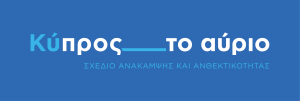
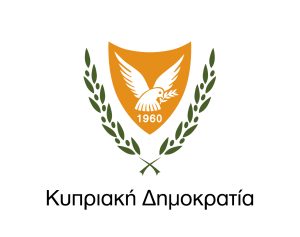


To Πρόγραμμα RESTART 2016-2020 για την Έρευνα, Τεχνολογική Ανάπτυξη και Καινοτομία συγχρηματοδοτούνται από την Κυπριακή Δημοκρατία, το Ευρωπαϊκό Ταμείο Ανάπτυξης και από τον Μηχανισμό Ανάκαμψης και Ανθεκτικότητας, του ευρωπαϊκού μέσου Επόμενη Γενιά ΕΕ.
Funding: €39,600.00
OASIS: Development of eco-friendly nanocapsules-based self-healing systems
The self-healing ability of coatings has become a treasured attribute of corrosion inhibitor formulations in recent times, and peculiar to the “smart” category of protective coatings, due to considerable delay in corrosion when they are in use, and a subsequent reduction upon final occurrence. Self-healing strategies based on encapsulation of liquid healing agents is one of the most successful and versatile approaches. The objective of OASIS is to develop the Minimum Viable Product (MVP) of a self-healing capsule-based system utilising nature-inspired design strategies and eco-friendly raw materials embedded into coating formulations to attribute auto-responsive characteristics.
The project is coordinated by ReCover Ltd. which is a new green-tech spin-in company at the Cyprus Institute (CyI), orientated towards the development of environment-friendly self-healing systems for custom coating solutions. Via novel encapsulation techniques, and by utilizing nature-inspired design strategies and biofriendly renewable resources, OASIS will engineer core-shell particle structures specifically designed to protect the external metallic surface of large constructions and high volume industrial products from corrosion. Applications of the resulting products include, but are not limited to, nuclear reactors, underwater piping, turbine blades, offshore/coastal energy installations, and Agricultural, Construction and Earthmoving (ACE) equipment.
OASIS is a project that is carried out in collaboration between ReCover Ltd and the CyI. Also, HB BODY S.A. (GR), a producer and distributor of technologically advanced products for the automotive refinishing industry and yacht coatings, contributes to this project as a primary stakeholder via cooperative developments.
The project PRE-SEED/0719(B)/0046 (OASIS) is co-funded by the European Regional Development Fund and the Republic of Cyprus through the Research and Innovation Foundation.






To Πρόγραμμα RESTART 2016-2020 για την Έρευνα, Τεχνολογική Ανάπτυξη και Καινοτομία συγχρηματοδοτούνται από την Κυπριακή Δημοκρατία, το Ευρωπαϊκό Ταμείο Ανάπτυξης και από τον Μηχανισμό Ανάκαμψης και Ανθεκτικότητας, του ευρωπαϊκού μέσου Επόμενη Γενιά ΕΕ.
Funding: €38,040.00
ATMO-ACCESS: Solutions for Sustainable Access to Atmospheric Research Facilities
ATMO-ACCESS is the organized response of distributed atmospheric research facilities for developing a pilot for a new model of Integrating Activities. The project will deliver a series of recommendations for establishing a comprehensive and sustainable framework for access to distributed atmospheric Research Infrastructures (RI), ensuring integrated access to and optimised use of the services they provide. ATMO-ACCESS mobilizes extensive resources in the atmospheric RIs communities to engage into harmonizing access procedures in relation to policies, financial regulations and conditions for access. It will develop and test innovative modalities of access to facilities and complementary and more advanced services, including digital services, developed as part of cross-RI efforts. ATMO-ACCESS will open physical and remote access to 43 operational European atmospheric research facilities, including ground-based observation stations, simulation chambers, but also mobile facilities and central laboratories that are fundamental elements in distributed RIs. Innovative cross-RI cloud services, addressing the management of data produced via access and the use of new, integrated data products, but also virtual tools for training, are offered through virtual access to RI data centres. All work in ATMO-ACCESS integrates experiences from past access programs, thus, synergistically streamlining the work and avoiding duplication of efforts.
ATMO-ACCESS will continuously engage with users and with national and international stakeholders to propose optimal conditions for a coherent and effective framework of access that has been sufficiently tested and is supported by the relevant user and stakeholder groups to establish and ensure the long-term sustainability of access with the European RI landscape.
This project has received funding from the European Union’s Horizon 2020 under grant agreement No 101008004
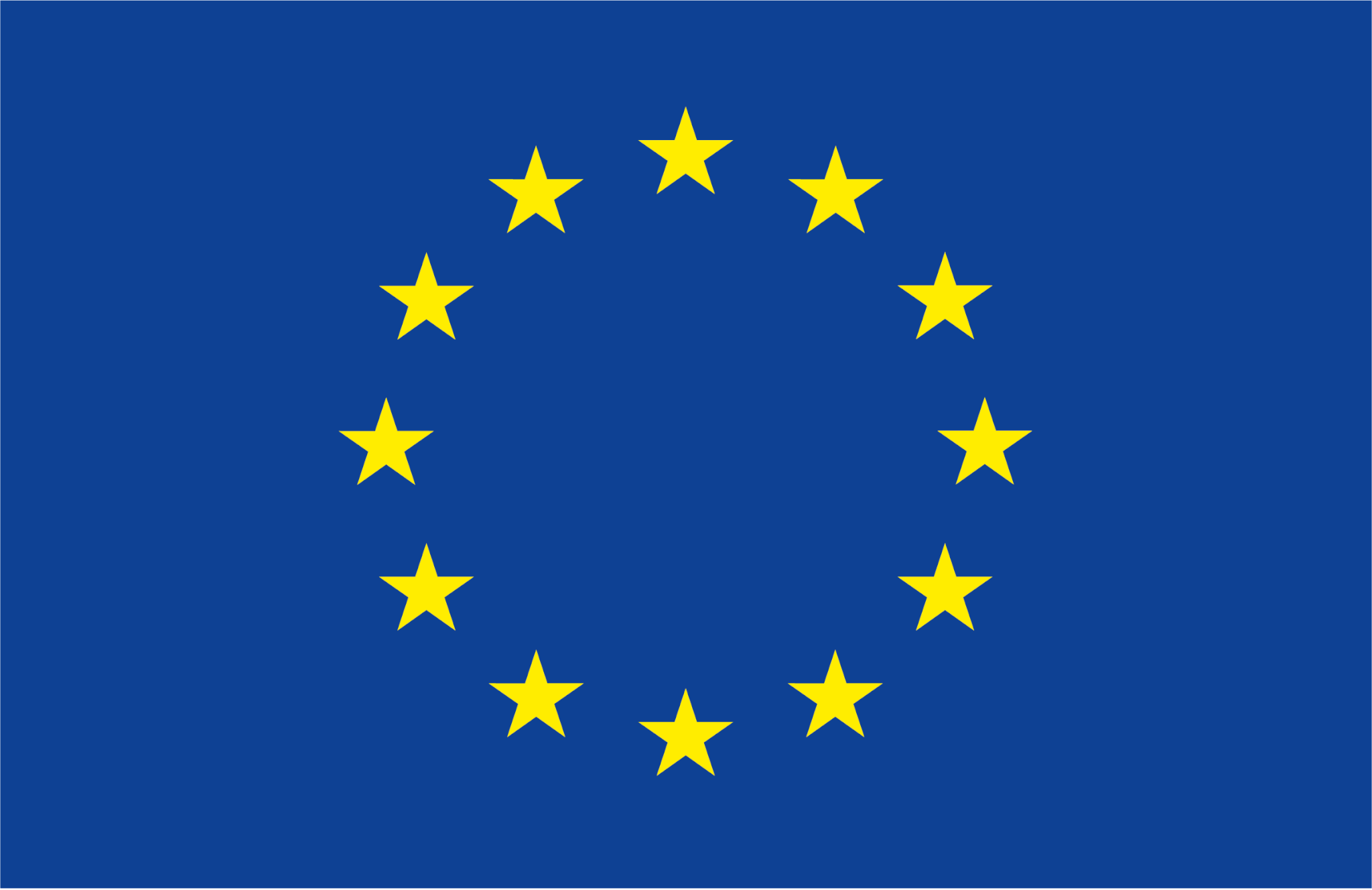 Funding: €305,500.00
Funding: €305,500.00
CoCO2: Prototype system for a Copernicus CO2 service
To support EU countries in assessing their progress for reaching their targets agreed in the Paris Agreement, the European Commission has clearly stated that a way to monitor anthropogenic CO2 emissions is needed. Such a capacity would deliver consistent and reliable information to support policy- and decision-making processes. To maintain Europe’s independence in this domain, it is imperative that the EU establishes an observation-based operational anthropogenic CO2 emissions Monitoring and Verification Support (MVS) capacity as part of its Copernicus programme. The CoCO2 Coordination and Support Action is intended as a continuation of the CO2 Human Emissions (CHE) project, led by ECMWF. In the Work Programme, ECMWF is identified as the predefined beneficiary tasked to further develop the prototype system for the foreseen MVS capacity together with partners principally based on the CHE consortium. In addition, ECMWF will continue some of the work initiated in the VERIFY project as well. The main objective of CoCO2 is to perform R&D activities identified as a need in the CHE project and strongly recommended by the European Commission’s CO2 monitoring Task Force. The activities shall sustain the development of a European capacity for monitoring anthropogenic CO2 emissions. The activities will address all components of the system, such as atmospheric transport models, re-analysis, data assimilation techniques, bottom-up estimation, in-situ networks and ancillary measurements needed to address the attribution of CO2 emissions. The aim is to have prototype systems at the required spatial scales ready by the end of the project as input for the foreseen Copernicus CO2 service element.
Objectives:
- Deliver prototype anthropogenic CO2 emission estimation systems at global, regional and local scales;
- Engage with user communities to co-design a service portfolio that ensures fitness-for-purpose of the prototype systems;
- Develop methodologies to assess the propagation of uncertainties within the system as well as of the outputs resulting in an Evaluation and Quality Control framework;
- Provide first inputs to the global stocktake process in time for the 1st global stocktake in 2023;
- Provide recommendations for the operational implementation of the CO2MVS within the Copernicus programme.
 Funding: €8,670,000.00
Funding: €8,670,000.00
COST MEDCYCLONES: European Network for Mediterranean Cyclones in weather and climate (2020 – 2024)
COST MEDCYCLONES aims at establishing a European network for the study of Mediterranean cyclones, relating which a number of scientific challenges are still unaddressed, requiring a coordinated approach. The need for this action stems from the fact that there are still significant gaps in understanding how cyclones can modulate the Mediterranean region in view of a changing climate. The Project is funded by the EU COST Association, under the Cost Action CA19109.
 Funding: €200.000,00
Funding: €200.000,00
ART-SARS: Air particle SARS detection
The COVID-19 outbreak has demonstrated how vulnerable our modern society is albeit its technological advancement. Although the effectiveness of different transmission routes has not been fully assessed yet, some first results suggest that the viability of the virus in the atmospheric environment is long enough (in the order of a few hours) to allow transmission through the air, which is hard to control. This is more so considering that asymptomatic cases have the ability to spread the virus in this way, therefore having serious implications for outbreak control strategies.
The main objective of this project is to develop and test a novel monitor that can detect the SARS-CoV-2 virus in the air. This novel detection system will consist of two parts combining state-of-the-art technologies developed by the two members of the consortium and a low-cost aerosol-to-liquid (AtL) bio sampler that can be used as the first part of the integrated monitoring system for detecting and measuring the concentration of SARS-CoV-2 in the air. Combining such an AtL sampler with a suitable detection system/protocol will yield a system for monitoring SARSCoV- 2 in the air.
The project INNOVATE-COVID/0420/0009 (ART-SARS) is co-funded by the by the European Regional Development Fund and the Republic of Cyprus through the Research Innovation Foundation





 Funding: €68,400.00
Funding: €68,400.00
ACCEPT: Assessment of Climate Change Effects on Pollution Transport in Cyprus (2020 – 2023)
The overall objective of ACCEPT is to provide new scientific knowledge on air pollution in Cyprus, with the expected positive impact of implementing efficient abatement strategies, improving air quality, and reducing human exposure; as well as to provide a new database of air pollution over Cyprus, with the expected positive impact of recording concentration maps, composition, contribution per sector, and local versus regional origin, with the aim to connect it with regional Climate Change. ACCEPT is funded by Iceland, Liechtenstein and Norway through the EEA Grants and Norway Grants.
 Funding: €800,000
Funding: €800,000
AIR-COVID-NETWORK: Monitoring the presence of airborne SARS-CoV-2 within large indoor public areas
AIR-COVID-NETWORK aims to develop and evaluate the benefits of implementing an easy-to-operate Bioaerosol Network, aiming at detecting in only one sample the presence of SARS-CoV-2 within an indoor atmospheric environment that has integrated exhaled aerosols from tens to hundreds of individuals within few hours. The added value of the Network is to operate either in a passive mode (to monitor the presence of SARS-CoV-2 in the air) or in a more active one (each individual blowing directly on the air sampler alike the alcohol test).
Because individual screening of the entire population is impossible to achieve, this approach offers a simple and cost-effective alternative compared to the time consuming and expensive random Covid-19 screening tests of large subsets of the population.
In close collaboration with public departments of the Government, field tests (to be performed within SARS-CoV-2 contaminated indoor environment of the Nicosia General Hospital) will allow for the rapid development of an optimal “SARS-CoV-2 filtration unit” and its deployment within a network of 10 monitoring points. This Bioaerosol Network will operate in various indoor environments within the agglomeration of Nicosia for a period of 1 month, at a time when the lockdown measures taken by the Government of the Republic of Cyprus will become less restrictive, thus perhaps allowing the virus to spread even more vigorously within the population. Ultimately, the knowhow gained in operating this network will be transferred to a strategic industrial partner for further exploitation and provision of competitive services.
The Project CONCEPT-COVID/0420/0014 is co-financed by the European Regional Development Fund and the Republic of Cyprus through the Research and Innovation Foundation







Young Local Opinion Leaders: Antibodies to Digital MisInformation
 In the “Antibodies to MisInformation” project we design, develop and apply to pilot schools a model experiential program for media education against MisInformation. The main goal is to develop the metacognitive attitude and skill of adolescent students of critically coping with information in digital media. We use climate change as an exemplary case study for digital misinformation, since it is a (literally and figuratively) hot subject on which a lot of both information and misinformation is available. The educational program is being designed and applied by the participating students themselves, members of the CyberSafety Youth Panel in cooperation and guidance by journalists, educators and policy makers.
In the “Antibodies to MisInformation” project we design, develop and apply to pilot schools a model experiential program for media education against MisInformation. The main goal is to develop the metacognitive attitude and skill of adolescent students of critically coping with information in digital media. We use climate change as an exemplary case study for digital misinformation, since it is a (literally and figuratively) hot subject on which a lot of both information and misinformation is available. The educational program is being designed and applied by the participating students themselves, members of the CyberSafety Youth Panel in cooperation and guidance by journalists, educators and policy makers.
This project is funded by through the Cyprus University of Technology under the “Combating Misinformation through Media Literacy” grants, by the Embassy of the United States of America to the Republic of Cyprus. The “Combating Misinformation through Media Literacy” grant is also supported by the Cyprus Pedagogical Institute of the Ministry of Education, Culture, Sport and Youth, and the Horizon 2020 Co-Inform project (#770302). Open University of Cyprus (and other partners)
The website https://misinfoantibodies.cyi.ac.cy/ is on air…
Partners
Open University of Cyprus (Project Coordinator)
The Cyprus Institute
Advanced Media Institute
Pancyprian Parents’ Association
Cyprus CyberSafety Yourth Panel
Antibodies project Facebook page

VeCTOR: Vector Climate Threat Online Resource (2020-2021)
Services for Copernicus. Development of a C3S demo case of a prognostic climate-driven vector-borne-disease risk assessment online platform, by exploiting the potential of the C3S infrastructure, including the diverse set of datasets in the CDS catalogue and the CDS toolbox. The underlying objectives are to:
- Enable planning effective management strategies, and minimize health impacts from future disease outbreaks;
- Highlight and exploit the environmental dependency of vectors, such as mosquitoes, sand flies, and ticks through a CDS data-driven, and predictive online mapping resource.
The VeCTOR demo case will be provided as a service to scientific experts, decision- and policy-makers, and to the public through identified citizen-scientist initiatives.
 Funding: €116.640,00
Funding: €116.640,00
ACTRIS IMP: Aerosol, Clouds and Trace Gases Research Infrastructure Implementation
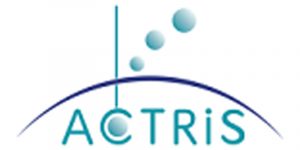 Different atmospheric processes are considered responsible for many challenges having societal and environmental impacts. Air pollution, public health, sustainability and climate change represent key issues for a wide range of institutions in the public and private sectors. The EU-funded project ACTRIS IMP promotes a pan-European research infrastructure, the Aerosol, Clouds and Trace Gases Research Infrastructure (ACTRIS), that produces high-quality data and information on temporary atmospheric components and the processes provoking the variability of these constituents in both natural and controlled atmospheres. Established more than 20 years ago, ACTRIS provides significant information for understanding atmospheric procedures and bio-geochemical relations between atmosphere and environments. ACTRIS IMP aims at a new knowledge that will create the structures for actions on national and EU levels. ACTRIS IMP (2020 – 2023) is funded by has received funding from the European Union’s Horizon 2020 research and innovation programme under grant agreement 871115.
Different atmospheric processes are considered responsible for many challenges having societal and environmental impacts. Air pollution, public health, sustainability and climate change represent key issues for a wide range of institutions in the public and private sectors. The EU-funded project ACTRIS IMP promotes a pan-European research infrastructure, the Aerosol, Clouds and Trace Gases Research Infrastructure (ACTRIS), that produces high-quality data and information on temporary atmospheric components and the processes provoking the variability of these constituents in both natural and controlled atmospheres. Established more than 20 years ago, ACTRIS provides significant information for understanding atmospheric procedures and bio-geochemical relations between atmosphere and environments. ACTRIS IMP aims at a new knowledge that will create the structures for actions on national and EU levels. ACTRIS IMP (2020 – 2023) is funded by has received funding from the European Union’s Horizon 2020 research and innovation programme under grant agreement 871115.
 Funding: €5M
Funding: €5M
CURE-3AB: Cooperation to Unravel the Role of the Atmospheric Aerosol over the Amazon Basin using drones
The mission of the Cooperation to Unravel the role of atmospheric aerosol over the Amazonian basin (CURE-3AB) is to provide high quality vertical profiles of key atmospheric pollutants relevant to air quality and climate change at the heart of the Amazonian basin. Located within the Amazon forest is the Amazon Tall Tower Observatory (ATTO), a facility taller than the Eiffel tower, dedicated for the observation of atmospheric pollutants. However, the entire vertical distribution of the troposphere cannot be fully accounted for using ATTO alone. This project pursues to complete the missing gap in the vertical distribution of atmospheric pollutants in that climatic sensitive area using both unmanned and manned aerial vehicles provided by The Cyprus Institute and Max Planck Institute, respectively.
CURE-3AB (2019 – 2021) is funded by the Research Promotion Foundation under the RESTART 2016—2020 programme International Collaborations—Dual Targeting and by the H2020 WIDESPREAD 2018-2020 program EMME-CARE.






MAGNUM: Monitoring for Aerosol Particle Growth and Chemical Composition During New Particle Formation Events Using Miniaturized Lightweight Instrument
One of the major uncertainties in climate-change is the contribution of airborne particles. A major source of these particles is nucleation from gaseous pollutants. In order to implement the particle effects to existing models the process of particle formation by nucleation in the atmosphere needs to be well understood. This requires to employ a dense network of monitoring stations measuring particle formation processes.
Currently, only a limited number of stations have the necessary equipment for measuring small particles produced by nucleation in the atmosphere. Monitoring for Aerosol Particle Growth and Chemical Composition During New Particle Formation Events Using Minaturized Lightweight Instruments (MAGNUM) aims to produce low-cost, lightweight, yet fast-response aerosol size spectrometers that can measure the size distribution of particles in less than a second. These instruments will allow ground observations of high spatial density as well as observations with Unmanned Aerial Vehicles (UAVs). MAGNUM is an RIF Excellence Project that has been officially launched on January 2nd 2019 and will end after 30 months on 30th of June 2021. The project will be carried out in collaboration with the University of Helsinki in Finland. MAGNUM (2019 – 2021) has received funding from the Research & Innovation Foundation (RIF), Republic of Cyprus.





 Funding: €248,700.00
Funding: €248,700.00
CELSIUS: Projecting Temperature climate extremes at regional to urban scales
The CELSIUS project aims to provide new climate change projections for Middle East/North Africa (MENA), including the eastern Mediterranean and Cyprus, at improved spatial precision and emphasis on temperature extremes and the warming over urban areas. The WRF model is used as a regional climate model (RCM) to dynamically downscale, first, meteorological re-analyses in a series of multi-physics simulations over the MENA region. An optimal for this region WRF model configuration will be obtained, by selecting the best performing (in comparison to observations) physical parametrisations set-up. CELSIUS (2019 – 2021) has received funding from the Research & Innovation Foundation (RIF), Republic of Cyprus

 Funding: €250.000,00
Funding: €250.000,00
Nano2Lab: Nanoparticle/Nanomaterial Synthesis and Characterization Laboratory
Launched in 2018, the overall objective of this project is to develop an infrastructure for synthesizing and characterizing nanoparticles (NPs) and nanomaterials (NMs) for applications in a wide range of areas, including sensing and catalysis. Nano2Lab (2018 – 2022) has received funding from the Research & Innovation Foundation (RIF), Republic of Cyprus.





 Funding: €999,960.00.
Funding: €999,960.00.
AQ-SERVE: Air Quality Services for a cleaner air in Cyprus
 Launched in December 2018, the AQ-SERVE project will provide the first-ever risk assessment and evaluation of the health impact of air pollution in Cyprus. AQ-SERVE aims to utilize best-in-class scientific and technological resources to identify the most efficient pollution abatement measures for improving air quality in Cyprus, and enable tangible benefits for public health, the environment, and the economy of Cyprus through the creation and updating of a National Air Quality Action Plan for Clean Air in Cyprus. AQ-SERVE (2018 – 2021) has received funding from the Research & Innovation Foundation (RIF), Republic of Cyprus.
Launched in December 2018, the AQ-SERVE project will provide the first-ever risk assessment and evaluation of the health impact of air pollution in Cyprus. AQ-SERVE aims to utilize best-in-class scientific and technological resources to identify the most efficient pollution abatement measures for improving air quality in Cyprus, and enable tangible benefits for public health, the environment, and the economy of Cyprus through the creation and updating of a National Air Quality Action Plan for Clean Air in Cyprus. AQ-SERVE (2018 – 2021) has received funding from the Research & Innovation Foundation (RIF), Republic of Cyprus.





 Funding: € 1M
Funding: € 1M
PRECEPT: Portable and Cost-effective Particulate Matter Monitoring System
PRECEPT is materialized by a collaboration between Advanced Integrated Technology Solutions & Services (ADITESS) Ltd, a scientific, consulting, and research SME and The Cyprus Institute (CyI), a non-profit research and education institution with a scientific and technological orientation. The project involves, highly skilled scientific personnel with different disciplines (e.g. atmospheric scientists, engineers) from both partners, making use of state of the art scientific equipment in order to reach its goals. The Project POST-DOC/0916/0287 (PRECEPT) is co-financed by the European Regional Development Fund and the Republic of Cyprus through the Research Promotion Foundation.





 Funding: 159,979.00€
Funding: 159,979.00€
META-Sat: modelling of Emissions, Trends and Air quality, using Satellite measurements
METASat project develops and applies methodologies to utilize satellite data and provide the mathematical tools needed for studying the air quality in the region, and offer the data on the basis of which mitigation and adaptation strategies are developed. The work provides the atmospheric scientists at the Cyprus Institute (CyI) advanced theoretical and technical knowledge to utilize satellite data in air quality modelling. The use of current and next generation satellite information can open a new area in operational forecasting through i) updating emissions with up-to-date information from space, ii) providing initial conditions for the concentrations of the monitored pollutants for regional and local air quality forecasting and iii) identify and investigate significant atmospheric and chemical processes, both of continuous and episodic nature, with spatially and temporally consistent space monitoring. This supports national and regional authorities to improve awareness, preparedness, and implement control strategies. META-Sat (2018 – 2021) has received funding from the European Space Agency (ESA).
 Funding: 220.000€
Funding: 220.000€


